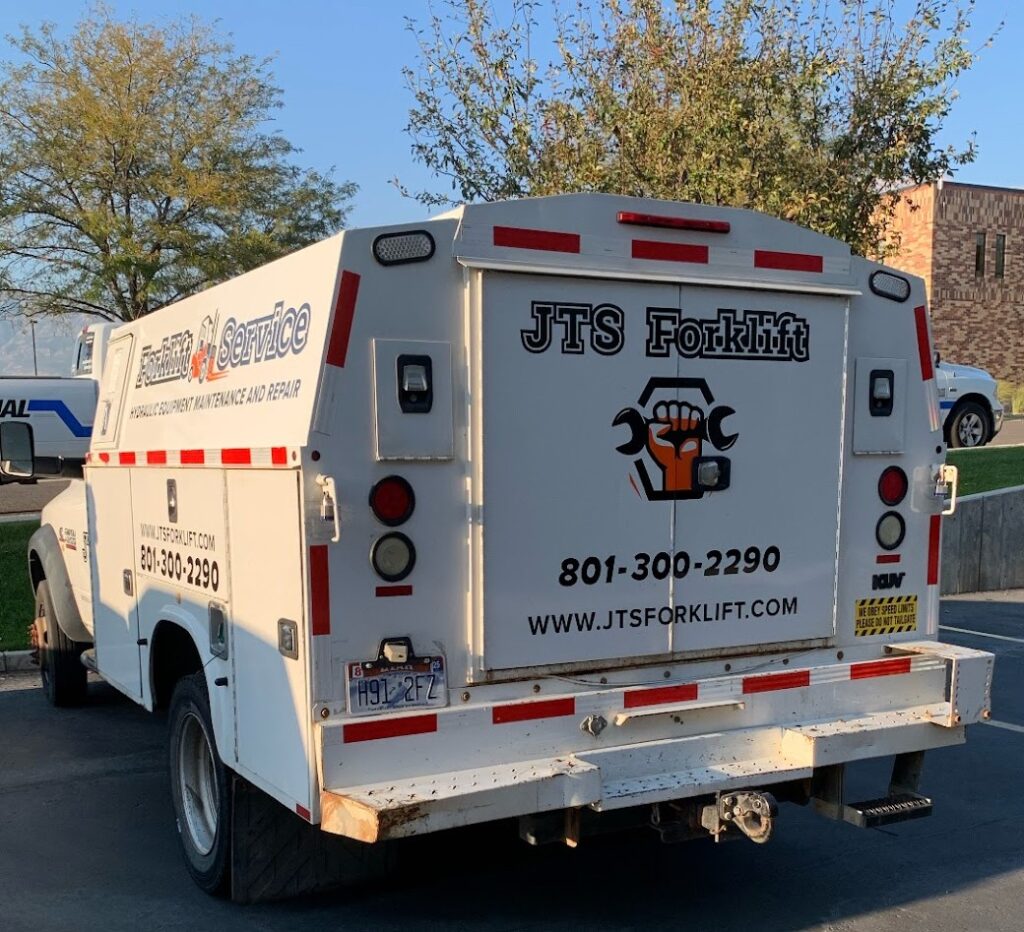Material handling equipment forms the backbone of warehouse operations across Utah and beyond. When your forklifts run smoothly, productivity soars. However, when these essential machines break down unexpectedly, the ripple effects can devastate your operational efficiency and profitability.
Forklift downtime doesn’t just mean a single machine sits idle. It can halt entire production lines, delay shipments, and force workers to scramble for alternative solutions. The financial impact extends far beyond the immediate repair costs, affecting everything from labor productivity to customer satisfaction.
Smart warehouse managers understand that preventing these disruptions requires a proactive approach. Rather than waiting for equipment failures, successful operations invest in comprehensive maintenance scheduling that keeps their fleet running at peak performance. This strategy not only reduces unexpected breakdowns but also maximizes the return on investment for expensive material handling equipment.
The High Cost of Forklift Downtime
Every minute your forklift sits broken translates directly into lost revenue. Consider a typical warehouse scenario: Your primary electric forklift breaks down during peak shipping season. Workers must manually move inventory or wait for alternative equipment. This delay affects multiple aspects of your operation simultaneously.
Production schedules slip when materials can’t reach assembly lines on time. Shipping deadlines become impossible to meet, potentially triggering penalty clauses with major customers. Meanwhile, your labor costs continue accumulating as workers stand idle or perform less efficient manual tasks.
The financial impacts escalate rapidly. Just one day of forklift downtime in a busy warehouse can cause significant productivity loss. Moreover, emergency repairs can cost 3-5 times more than scheduled maintenance, as technicians charge premium rates for urgent service calls and expedited parts delivery.
Beyond immediate costs, equipment failures damage your reputation with customers who depend on reliable delivery schedules. Lost contracts and reduced customer loyalty represent long-term financial consequences that far exceed the original repair expenses, contributing significantly to overall productivity loss.
Preventive Maintenance: A Proactive Approach
Preventive maintenance transforms your approach to equipment management from reactive to proactive. Instead of addressing problems after they occur, this strategy focuses on preventing issues before they disrupt operations.
This methodology involves scheduled inspections, routine servicing, and systematic component replacement based on manufacturer recommendations and usage patterns. By maintaining equipment according to predetermined schedules, you significantly reduce the likelihood of unexpected failures.
The benefits extend beyond simple breakdown prevention. Regular maintenance ensures your hydraulic equipment operates at optimal efficiency levels, reducing energy consumption and extending component lifespan. Well-maintained machines also operate more safely, protecting your workforce and reducing liability risks.
Furthermore, preventive maintenance provides valuable data about equipment performance trends. Technicians can identify gradual deterioration patterns and plan replacements during scheduled downtime rather than during critical operational periods, thereby preventing future productivity loss.
Key Components of a Forklift Maintenance Schedule
Effective maintenance scheduling encompasses several critical elements that work together to keep your fleet operational. Each component addresses specific aspects of equipment performance and safety requirements.
Routine Check-ups and Tune-ups
Regular inspections form the foundation of any successful maintenance program. These comprehensive evaluations examine all major systems, from hydraulic components to electrical connections. Skilled technicians identify potential problems while they remain minor and cost-effective to address.
During routine check-ups, technicians assess wear patterns on critical components like tires, chains, and hydraulic seals. They also verify that safety systems function correctly and that all fluid levels meet manufacturer specifications.
Battery Maintenance and Electrical Systems
Electric forklifts require specialized attention to their power systems. Battery maintenance involves regular cleaning, fluid level checks, and charging system evaluations. Proper battery care extends equipment life significantly while ensuring consistent performance throughout shifts.
Electrical system inspections cover wiring harnesses, connectors, and control circuits. These components endure constant vibration and environmental stress, making regular evaluation essential for preventing costly electrical failures.
Fluid Checks and Changes
Hydraulic systems depend on clean, properly specified fluids for optimal performance. Regular fluid analysis identifies contamination before it damages expensive components like pumps and cylinders.
Oil changes, hydraulic fluid replacement, and brake fluid maintenance ensure all systems operate within design parameters. These seemingly minor services prevent major component failures that could sideline equipment for days or weeks.
Parts Replacement and Inventory Management
Proactive parts replacement based on usage patterns and manufacturer recommendations prevents unexpected failures. This approach requires maintaining an adequate inventory of critical components while avoiding excessive carrying costs.
Comprehensive parts programs ensure quick access to genuine components when needed. Having the right parts available minimizes repair time and reduces the temptation to install inferior aftermarket alternatives that could compromise performance.
Safety and Performance Testing
Regular safety inspections ensure compliance with OSHA standards and manufacturer requirements. These evaluations verify that all safety systems function correctly and that equipment operates within acceptable performance parameters.
Performance testing identifies gradual efficiency losses that might indicate developing problems. Early detection allows for corrective action before performance degradation affects productivity or leads to component failure.

JTS Forklift Service: Your Local Utah Partner
JTS Forklift Service stands as Utah’s premier provider of comprehensive material handling equipment maintenance and repair services. With over 30 years of combined expertise, our team specializes in keeping your fleet operational and efficient.
24/7 Mobile Service to Minimize Downtime
Our commitment to exceptional service extends beyond standard business hours. Equipment issues can strike anytime, which is why JTS Forklift Service provides 24/7 mobile service throughout Utah. Our dedicated team responds quickly to unexpected breakdowns and emergency repairs, bringing expert technicians directly to your facility. This minimizes operational disruption, eliminates transportation costs, and keeps your operations flowing smoothly.
Flexible Maintenance Programs for Any Fleet
JTS Forklift Service offers flexible maintenance programs designed to meet diverse operational needs. Whether you operate a single piece of equipment or manage an extensive fleet, they provide scheduled, reliable maintenance services tailored to your requirements.
Our expertise covers all makes and models of forklifts, with particular specialization in electric equipment. Our technicians understand the unique needs of different power systems and can deliver targeted maintenance solutions for your specific fleet.
When it comes to keeping your operations running smoothly, JTS Forklift Service is the partner you can count on. From emergency repairs to tailored maintenance plans, we are here to support your business every step of the way.
Maximizing Your Investment Through Strategic Maintenance
Effective maintenance scheduling requires balancing service frequency with operational demands. Too little maintenance increases breakdown risks, while excessive servicing wastes resources without proportional benefits.
The optimal approach considers equipment age, usage intensity, and operational criticality. High-utilization machines in critical applications require more frequent attention than occasional-use equipment in less demanding roles.
Documentation plays a crucial role in maintenance effectiveness. Detailed service records help identify patterns, track component performance, and plan future maintenance activities. This information proves invaluable when making equipment replacement decisions or troubleshooting recurring issues.
Cost analysis should encompass total ownership expenses rather than focusing solely on immediate service costs. Preventive maintenance represents an investment that pays dividends through reduced emergency repairs, extended equipment life, and improved operational reliability.
Transform Your Operations with Professional Maintenance
Forklift downtime is one of the most controllable operational risks facing warehouse managers today. While equipment failures seem unavoidable, their frequency and impact can be greatly minimized through strategic preventive maintenance programs. The financial benefits of proactive maintenance go far beyond avoiding repair costs. Improved equipment reliability boosts customer satisfaction, reduces labor inefficiencies, and provides the operational predictability necessary for effective business planning.
Don’t let preventable equipment failures compromise your operational success. Take control of your material handling equipment performance through strategic maintenance planning that protects your bottom line while enhancing productivity.
Ready to protect your investment and reduce costly downtime? Get a forklift maintenance quote from the experts at JTS Forklift Service. Contact us and discuss how our comprehensive maintenance programs can optimize your fleet performance and operational efficiency.
GET IN TOUCH WITH US TODAY
